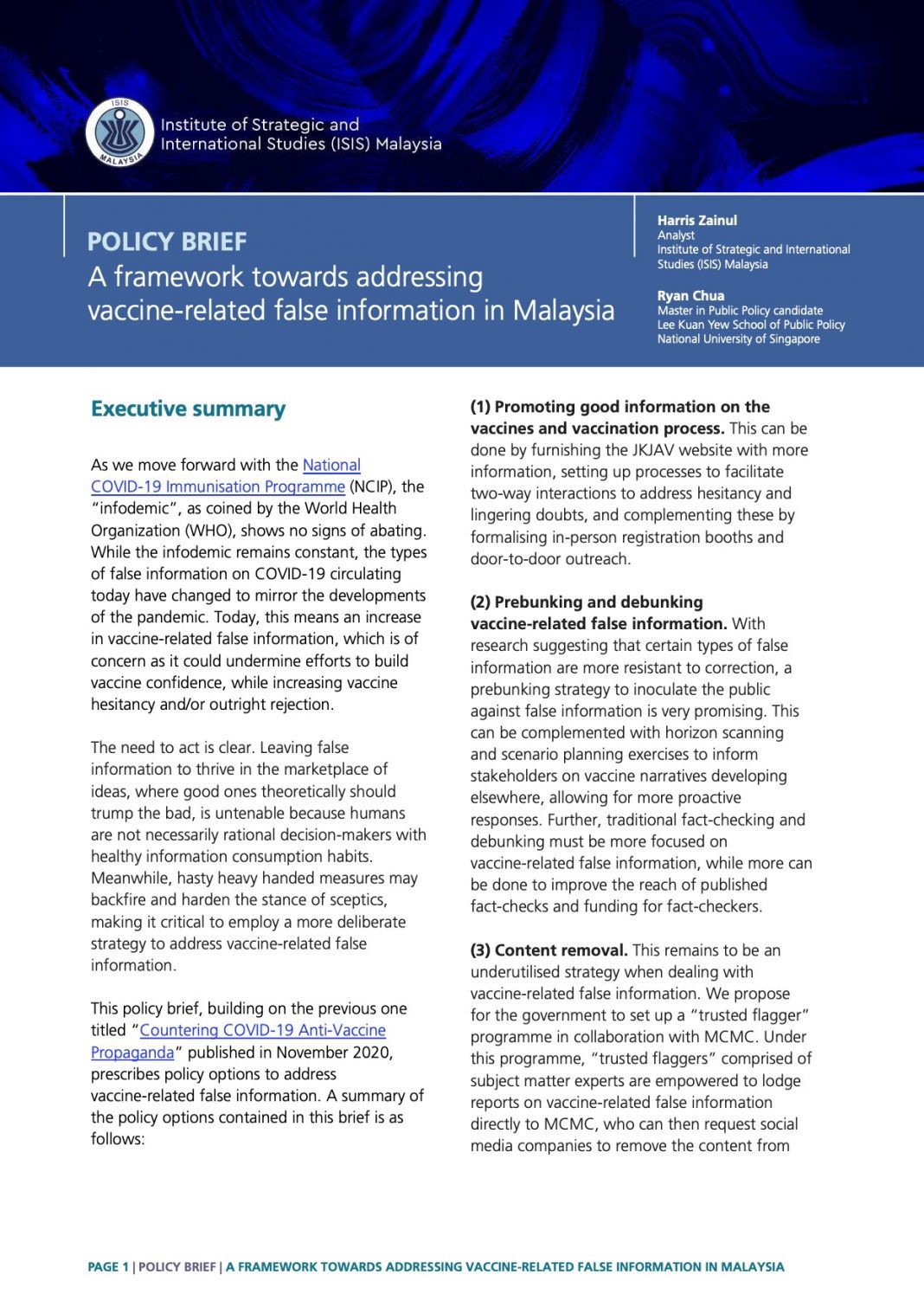Executive summary
As we move forward with the National COVID-19 Immunisation Programme (NCIP), the “infodemic”, as coined by the World Health Organization (WHO), shows no signs of abating. While the infodemic remains constant, the types of false information on COVID-19 circulating today have changed to mirror the developments of the pandemic. Today, this means an increase in vaccine-related false information, which is of concern as it could undermine efforts to build vaccine confidence, while increasing vaccine hesitancy and/or outright rejection.
The need to act is clear. Leaving false information to thrive in the marketplace of ideas, where good ones theoretically should trump the bad, is untenable because humans are not necessarily rational decision-makers with healthy information consumption habits. Meanwhile, hasty heavy handed measures may backfire and harden the stance of sceptics, making it critical to employ a more deliberate strategy to address vaccine-related false information.
This policy brief, building on the previous one titled “Countering COVID-19 Anti-Vaccine Propaganda” published in November 2020, prescribes policy options to address vaccine-related false information.
By
Harris Zainul
Analyst
Institute of Strategic and International Studies (ISIS) Malaysia
Ryan Chua
Master in Public Policy candidate
Lee Kuan Yew School of Public Policy National University of Singapore





